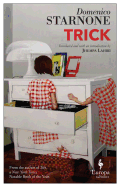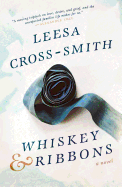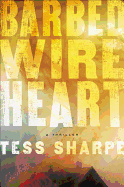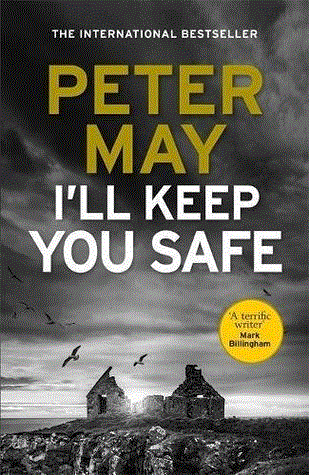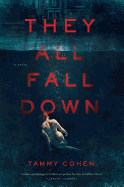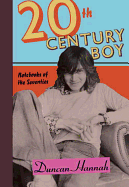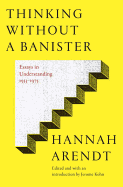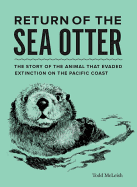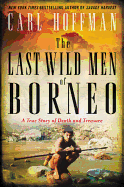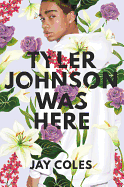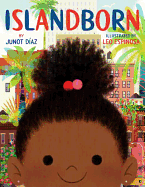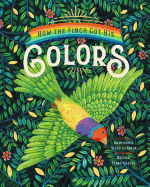April Showers & Autism Awareness
My son has a collection of memoirs by individuals with autism spectrum disorder that never leave his nightstand. They offer comfort and inspiration whenever he needs a boost. In honor of April being Autism Awareness Month and the upcoming World Autism Awareness Day on April 2, here's a look at some of these much-loved titles.
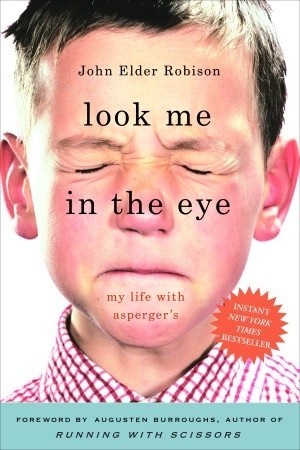 Look Me in the Eye: My Life with Asperger's by John Elder Robison (Three Rivers, $16) is considered a touchstone in the literature on Asperger's Syndrome, also known as high-functioning autism, although the labels can be confusing. Robison is living proof that being "normal" is overrated and that one can lead a successful life despite communication and social challenges.
Look Me in the Eye: My Life with Asperger's by John Elder Robison (Three Rivers, $16) is considered a touchstone in the literature on Asperger's Syndrome, also known as high-functioning autism, although the labels can be confusing. Robison is living proof that being "normal" is overrated and that one can lead a successful life despite communication and social challenges.
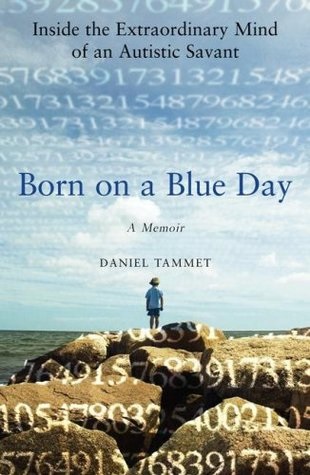 Beautifully written, Born on a Blue Day: Inside the Extraordinary Mind of An Autistic Savant by Daniel Tammet (Free Press, $16) is a rare glimpse inside the mind of a young man struggling to fit in while also managing his extraordinary talents, family and personal relationships. It won recognition as an ALA "Best Book for Young Adults" for good reason.
Beautifully written, Born on a Blue Day: Inside the Extraordinary Mind of An Autistic Savant by Daniel Tammet (Free Press, $16) is a rare glimpse inside the mind of a young man struggling to fit in while also managing his extraordinary talents, family and personal relationships. It won recognition as an ALA "Best Book for Young Adults" for good reason.
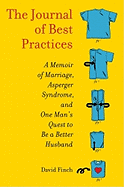 David Finch didn't know he had Asperger's Syndrome until his wife called him out on it. The Journal of Best Practices: A Memoir of Marriage, Asperger Syndrome and One Man's Quest to Be a Better Husband (Scribner, $16) is Finch's heartwarming account of learning neurotypical behaviors to improve his marriage and family life. His earnest efforts serve as inspiration to others struggling to fit in.
David Finch didn't know he had Asperger's Syndrome until his wife called him out on it. The Journal of Best Practices: A Memoir of Marriage, Asperger Syndrome and One Man's Quest to Be a Better Husband (Scribner, $16) is Finch's heartwarming account of learning neurotypical behaviors to improve his marriage and family life. His earnest efforts serve as inspiration to others struggling to fit in.
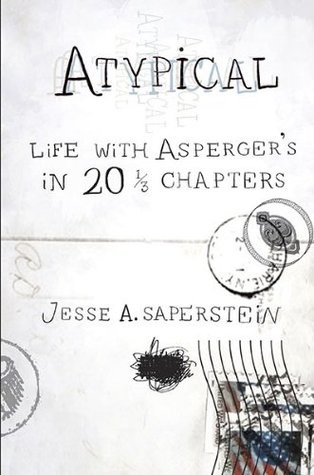 Atypical: Life with Asperger's in 20 1/3 Chapters (TarcherPerigee, $15) is a blessing of a book. Jesse A. Saperstein takes it upon himself to help other "Aspies" cope and thrive with their neurodiversity, and his practical advice is heartily administered with comic honesty.
Atypical: Life with Asperger's in 20 1/3 Chapters (TarcherPerigee, $15) is a blessing of a book. Jesse A. Saperstein takes it upon himself to help other "Aspies" cope and thrive with their neurodiversity, and his practical advice is heartily administered with comic honesty.
Each of these memoirs is a reminder that we are all somewhere on the spectrum of behavior, some less neurotypical, but no less human, than others. --Shahina Piyarali, writer and reviewer
April Showers & Autism Awareness
Famous Writers' Adorable Pets
Meet "13 of the most adorable pets owned by famous writers," courtesy of Buzzfeed.
---
"An ancient book blasted with high-powered X-rays reveals text erased centuries ago," Mental Floss reported.
---
From horticulture to Tsarist Russia, Penelope Lively picked "five books about renewal" for the Guardian.
---
"Resting on right cheek: You are too willing." Atlas Obscura featured "the Victorian cards that explained how to use a book to flirt."
---
Signature considered "why readers and writers alike love a boarding school tale."
---
Bookshelf featured the Object-A chair bookcase from SY Design, which said: "I start building my objet like the city's tallest building seen from the window in the room."
Famous Writers' Adorable Pets
Rediscover: John Ehle
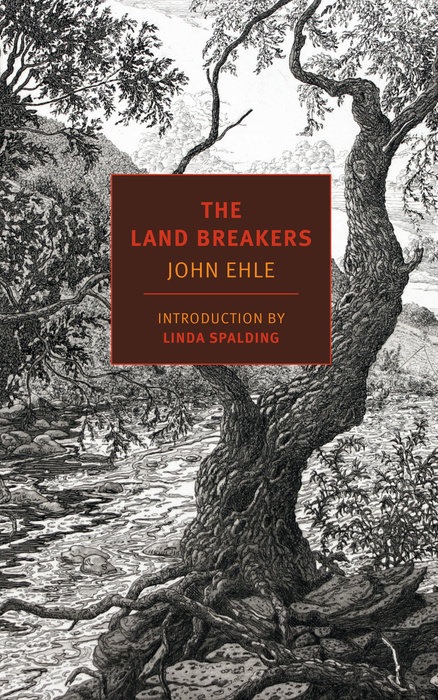 Appalachian author, government adviser and founder of the North Carolina School of the Arts John Ehle died last Saturday at age 92. Born in Asheville, N.C., Ehle served as a rifleman in World War II, earned his Masters degree in dramatic arts and wrote for radio before publishing his first novel, Move Over Mountain, in 1957, followed by a biography, The Survivor: The Story of Eddy Hukov, in 1958. His second--and best-known--novel, The Land Breakers (1964), follows the first white people to settle the mountains of western North Carolina during the late 18th century. It became the first in a seven-part series set in the same region of Appalachia through the 1930s, two of which, The Winter People and The Journey of August King, were adapted into films. The Free Men, published in 1965, is a first-person account of the civil rights movement in Chapel Hill.
Appalachian author, government adviser and founder of the North Carolina School of the Arts John Ehle died last Saturday at age 92. Born in Asheville, N.C., Ehle served as a rifleman in World War II, earned his Masters degree in dramatic arts and wrote for radio before publishing his first novel, Move Over Mountain, in 1957, followed by a biography, The Survivor: The Story of Eddy Hukov, in 1958. His second--and best-known--novel, The Land Breakers (1964), follows the first white people to settle the mountains of western North Carolina during the late 18th century. It became the first in a seven-part series set in the same region of Appalachia through the 1930s, two of which, The Winter People and The Journey of August King, were adapted into films. The Free Men, published in 1965, is a first-person account of the civil rights movement in Chapel Hill.
Besides writing 11 novels and six works of nonfiction, Ehle served as a special assistant to North Carolina Governor Terry Sanford in the early '60s, where he helped establish the North Carolina Governors School and the North Carolina School of Arts. Sanford called Ehle a "one man think tank," and said that "if I were to write a guidebook for new governors, one of my main suggestions would be to find a novelist and put him on his staff." Ehle was also a member of the U.S. National Committee for UNESCO and served on the National Council for Humanities. Many of Ehle's works have been reprinted in the past decade by Press 53, a small imprint in North Carolina. In 2014, New York Review Books Classics republished The Land Breakers with an introduction by Linda Spalding ($17.95, 9781590177631). --Tobias Mutter
Book Review
Fiction
Trick
by Domenico Starnone, trans. by Jhumpa Lahiri
The initial premise is deceivingly simple: Daniele Mallarico is an elderly widower and a noted book illustrator in decline who lives in Milan, Italy. His daughter, Betta, asks him to babysit his four-year-old grandson, Mario, for four days. She and her husband, Saverio, live in Naples, in the same house where Daniele was raised decades before, and both are university professors who need to travel to an academic conference.
Daniele is reluctant to accept his daughter's appeal, as he's recovering from a "small surgical procedure." He is also facing a pressing deadline from his publisher to illustrate a Henry James story about a man who returns to his former house and is confronted by a ghost. When Daniele concedes and arrives in Naples, he learns that Betta and Saverio's marriage is in trouble and his exceptionally precocious grandson is a devious menace. The boy lights the burners on the stove and even handles knives. What ensues are four days contending with a needy, demanding grandson whose chilling, escalating antics ultimately force Daniele to face the ghosts and phantoms plaguing his life.
Snappy dialogue and sharp, briskly drawn scenes are perfectly balanced with intimate ruminative passages. All is further enhanced by Jhumpa Lahiri's insightful translation and introduction. As in his previous novel, Ties, Domenico Starnone has written an emotionally complex, layered story whose brevity serves to amplify profound themes of self-identity, marriage, aging, death and the daunting sacrifices of the creative life. --Kathleen Gerard, blogger at Reading Between the Lines
Discover: A successful illustrator and elderly grandfather has his life upended when he agrees to babysit his menacing four-year-old grandson.
Europa Editions,
$16,
paperback, 176p., 9781609454449
Whiskey & Ribbons
by Leesa Cross-Smith
Leesa Cross-Smith's slow-burning, sensuous and heart-aching first novel, Whiskey & Ribbons, navigates the fraught--but by no means fruitless--relationship between the sexes during times of grief.
Eamon is a black Louisville, Ky., police officer killed in the line of duty. In the aftermath, his young wife, Evi, leans on Eamon's half-brother, Dalton, for support and help with her newborn son, Noah. Already close, Evi and Dalton form a romantic relationship that tests their personal boundaries and their sense of loyalty. He's also searching for his biological father--he was adopted by Eamon's family after his mother committed suicide--which further complicates family relations.
Known for her short stories, Cross-Smith (Every Kiss a War) gives Eamon, Evi and Dalton their own first-person chapters, resulting in three distinct voices playing off each other in harmony. "Women, you are sleek and gorgeous. You hold us together, you're the ribbons," Eamon says. "We're men. Dangerous only if you take us too seriously. We're the whiskey." Cross-Smith employs a finely tuned poetic sense to elaborate on this central conceit. She explores the stages of grief, desire and intimacy through subtle changes in moods, often embodied in her characters' perceptions of colors and smells and music. The main trauma in the novel--Eamon's death--is made known in the first page, yet that doesn't stop a tear-jerking climax when all the narrative measures coalesce at the end. Whiskey & Ribbons lingers in the mind like a sad, sweet song. --Scott Neuffer, writer, poet, editor of trampset
Discover: In Leesa Cross-Smith's debut novel, two friends find love again after unspeakable tragedy.
Hub City Press,
$27,
hardcover, 272p., 9781938235382
Barbed Wire Heart
by Tess Sharpe
No stranger to the remote forests of California's Del Norte County on the Oregon border, Tess Sharpe was raised by a punk-rock mother in the area's unpopulated backwoods. Her first adult novel (after the YA novel Far from You), Barbed Wire Heart, follows the flinty, crack-shot, unschooled feminist narrator Harley McKenna through the region, as she fights to claim her place in a violent world run by her formidable father, Duke. Her mother was killed in a meth lab explosion triggered by McKenna family rival Carl Springfield, "a redneck peacock of a man in a dirty wifebeater and Wranglers... sunken cheeks and jutting bones that come only from years of tweeking."
Although the McKenna and Springfield multi-generational feud rests in an uneasy truce, it won't last. The family patriarchs are aging, and Duke has raised Harley to replace him as kingpin of the county. Carl's not buying it. Harley sees only one way out of her family fate: both Duke and Carl have to go. A soft touch for the underdog, Harley oversees the Ruby, a former motel converted into a safe house for abused women and children. Seeing the human toll from Duke's meth, opiates and heroin trade, she plans to run only the soon-to-be legal and less harmful marijuana business, and she'll arm her "rubies" to protect themselves from the violent men who upended their lives. As she says, "There is nothing stronger than a woman who's risen from the ashes of some fire a man set." --Bruce Jacobs, founding partner, Watermark Books & Cafe, Wichita, Kan.
Discover: In the isolated woods of northern California, Harley McKenna takes on family and foe to make her own place in a hard world.
Grand Central,
$26,
hardcover, 416p., 9781538744093
Mystery & Thriller
I'll Keep You Safe
by Peter May
While in Paris for an international fabric fair, Niamh Macfarlane accuses her husband and business partner, Ruairidh, of having an affair with fashion designer Irina Vetrov. He vehemently denies being unfaithful and storms out of their hotel, only to be picked up by Vetrov and driven away in her Mercedes as Niamh looks on. Distraught, Niamh rushes to chase after them and is rocked by an explosion that obliterates the Mercedes.
Niamh is dumbstruck by the bombing and its odd aftermath, including missing belongings, mysterious phone calls and a sudden visit from a long-estranged friend and business associate. Her return home to the Hebrides does not bring normalcy, and clues to Ruairidh's death are cleverly woven into the timeline via flashbacks to the couple's shared childhood and tragic inter-family drama.
I'll Keep You Safe, another standalone thriller from Peter May (Coffin Road), starts with a bang, and continues as a twisty slow burn that explores decades of history between Niamh and Ruairidh, their families, associates and friends. May treats his readers as intelligent and curious, writing in English, French and Scots Gaelic, and using local jargon, adding to the atmosphere and authenticity.
As always, May brings a glorious sense of place to the narrative. To read Peter May is to believe Mother Nature invented the Hebrides for him to describe them. His storytelling overshadows a few errant plot arcs and some bent boundaries of believability, resulting in an entrancing tale of romance and intrigue. --Lauren O'Brien of Malcolm Avenue Review
Discover: Decades of tragedy and romance unfold as the backdrop to the mysterious death of a husband accused of betrayal.
Quercus,
$26.99,
hardcover, 304p., 9781681440934
They All Fall Down
by Tammy Cohen
"Charlie cut her wrists last week with a shard of caramelized sugar." The chilling opening sentence of They All Fall Down by Tammy Cohen (When She Was Bad) makes it clear that the reader is in for a shocking psychological thriller.
A few months before the story begins, Hannah had an almost perfect life. She loved her job and her husband, Danny. But then she did something that shook Danny, and her mother, Corinne, to their cores. As a result, she is in a high-risk psychiatric facility called the Meadows. Charlie is one of Hannah's best friends there, until Charlie is found with her wrists slit. And she isn't the only woman to apparently kill herself, convincing Hannah that something dreadful is going on.
As Hannah tries to figure out what is happening to the patients, she tells her mother her theories. Corinne is alarmed at Hannah's apparent mental regression, but agrees to research the background of some staff members to try to ease Hannah's mind. When she finds inexplicable holes in the résumé of the clinic's charismatic director and sinister "gifts" start appearing in Hannah's room and on Corinne's doorstep, Corinne begins to wonder if her daughter isn't so crazy after all.
With many twists and turns that will leave the reader wondering just who is sane and who isn't, They All Fall Down is a well-written, gripping thriller. Fast-paced, with nuanced characters, it's a glimpse into the troubled minds of both victims and perpetrators. --Jessica Howard, bookseller at Bookmans, Tucson, Ariz.
Discover: In this tense psychological thriller, a woman in a posh psychiatric unit is convinced that a killer is targeting her fellow patients.
Pegasus Books,
$25.95,
hardcover, 384p., 9781681776477
Biography & Memoir
Twentieth-Century Boy: Notebooks of the Seventies
by Duncan Hannah
Artist Duncan Hannah began keeping a journal when he was 17, living with his parents in Minneapolis and in constant pursuit of sex, drugs and the budding punk rock scene. "I'm writing these journals to capture my youth," he confesses. "I'd like to fulfill a dream and become a pop star, but I can't sing!" By the end of these journals (1981, at age 28), the transplanted New Yorker's oil paintings were earning him lasting fame.
Like Patti Smith's Just Kids, Hannah's Twentieth-Century Boy captures the raw, exciting, boozy and sensual times, coming of age among budding New York artists in the 1970s. Strikingly beautiful and amazingly well-read, Hannah attracted a lot of attention from both men and women. Although he was a voracious heterosexual, he admired the gay artists surrounding him. While finding himself as a painter, he worked as a print model and even co-starred in two underground films with Debbie Harry. Amid the rampant drinking and drugs, it's amazing Hannah kept such detailed and evocative journals. At one point, he complains, "I smell like booze all the time now, but it's expensive booze for a change.... I'm living faster than I can write." One boozy night out with Andy Warhol, David Bowie and Bryan Ferry ends with a bouncer tossing him into the gutter. "Just like in the movies," he writes. "The famous gutter that I've heard so much about. I made it!"
Hannah captures the exuberance and flamboyance of budding artists set free in the sexually permissive, drug-fueled art world of 1970s NYC. --Kevin Howell, independent reviewer and marketing consultant
Discover: Artist Duncan Hannah's raw, exciting and boozy journals chronicle his coming of age among other budding artists in New York City during the 1970s.
Knopf,
$28.95,
hardcover, 480p., 9781524733391
The Kevin Show: An Olympic Athlete's Battle with Mental Illness
by Mary Pilon
In the face of trauma, we often reach a stage of disbelief, wondering if the scene we're witnessing is real or not, but eventually we accept our perceptions and move on. For Kevin Hall, the boundary between reality and his discernment of the world is hazier than most. In The Kevin Show, Mary Pilon uses many points of view accurately and expertly to share the struggles Kevin has faced throughout most of his adult life as he contends with his bipolar disorder--what doctors call "Truman Show delusions."
Kevin is an athlete, who quickly made a name for himself in the sailing world, winning numerous races as he advanced toward his life's goal--becoming a member of the Olympic sailing team and winning a gold medal. But as his skills progressed, so did his mental issues. On multiple occasions, over the course of decades, Kevin went into manic states and believed he was on The Show, with everyone and everything around him just part of a new episode put together by The Director. These episodes were juxtaposed with his non-manic life, which was filled with competitions, falling in love, the lows that come after a manic state and facing another physical setback--cancer.
Pilon's portrayal of Hall's creative and exhilarating highs and devastating slumps, as well as her inclusion of accounts by family and friends, help readers see just how convoluted Hall's life really is. It opens a much-needed window into the world of mental illness and the effects the mind has on a person. --Lee E. Cart, freelance writer and book reviewer
Discover: An Olympic sailing athlete battles the seas and his own mind as he races toward the gold.
Bloomsbury,
$28,
hardcover, 336p., 9781632866820
Philosophy
Thinking Without a Banister: Essays in Understanding, 1953-1975
by Hannah Arendt
Hannah Arendt was a key 20th-century Jewish German-American political theorist who was committed to thinking outside traditional moral, political, religious or philosophical structures. The first volume of Essays in Understanding, 1930-54, was published in 2005. This second volume covers the last 20 years of her life, the period after she became a U.S. citizen and wrote most of her major books. It collects more than 40 of her interviews, essays, reviews, public talks and editorials for the first time.
Arendt's importance and the arguments raised by her work are well-established, and editor Jerome Kohn provides a good overview and context in his introduction. Many of these short works deal with her recurring interests in totalitarianism, political freedom and revolution. Others deal with the assassination of President Kennedy, violence in U.S. society, Karl Marx, Heidegger, the novels of Nathalie Sarraute, separation of church and state, and her memories of her friend the poet W.H. Auden. In a long essay on the Hungarian Revolution, she lays out her ideas about a council form of government, "the only alternative for a democratic government in the modern age." She bases them on revolutionary councils that have "emerged with a historically unparalleled regularity whenever the people have been permitted for a few days, or a few weeks, or months, to follow their own political devices without being spoon-fed by a party or steered by a government." A few of these pieces are dated now, but in all cases her thinking is as fresh and challenging as ever. This collection will interest those who are already familiar with her, and could be a good introduction for new readers as well. --Sara Catterall
Discover: A varied collection of writings by the great and controversial 20th-century German Jewish political theorist.
Schocken,
$40,
hardcover, 608p., 9780805242157
Nature & Environment
Return of the Sea Otter: The Story of the Animal that Evaded Extinction on the Pacific Coast
by Todd McLeish
Otters are undeniably cute animals, but they're far from universally beloved. As the science writer Todd McLeish (Basking with Humpbacks) explains in the fascinating Return of the Sea Otter: The Story of the Animal that Evaded Extinction on the Pacific Coast, the little wide-faced animals compete with Alaskan commercial fisheries for sea urchins and crab. Otters are also "unfairly blamed for invertebrate declines" that are much more likely caused by overfishing. As such, otters are frequently hunted and killed, which is especially threatening because their numbers are already dangerously low.
Traveling the coast from California to Alaska, McLeish speaks with scientists, wildlife refuge managers, and others to learn more about the vital relationship otters have with their environments, and how killing otters throws delicate ecosystems into death spirals: "Sea otters have an unusual influence on the health and maintenance of their kelp-forest ecosystem," writes McLeish.
McLeish's book is more than lovely and informative writing about otter life on the Pacific coast--it's a call to action. Though these creatures have natural enemies, like white sharks, humans are their biggest threat. The early 19th-century fur trade almost drove the animals to extinction, writes McLeish. And today, otters are not only hunted but frequently maimed and killed by boats and fishing equipment. From beginning to end, Return of the Sea Otter warns that humans must change our ways or prepare to lose the otter forever. --Amy Brady, freelance writer and editor
Discover: A science writer travels the length of the North American Pacific coast to learn why otters are dying off and what we can do to save them.
Sasquatch Books,
$19.95,
paperback, 264p., 9781632171375
Travel Literature
The Last Wild Men of Borneo: A True Story of Death and Treasure
by Carl Hoffman
In the 1980s, two remarkably different men visited the Southeast Asian island of Borneo. Both men "had sprung from a group, a tribe, that they didn't feel a part of any longer," yet were motivated by different things: one was fascinated with the "primitive" and the other was seeking his fortune. Only one would make it out alive.
In The Last Wild Men of Borneo, Carl Hoffman (Savage Harvest) follows the footsteps of Bruno Manser and Michael Palmieri, both of whom had significant effects on the indigenous people of Borneo. Manser, a Swiss environmental activist, slight in build but larger than life, immediately fell in love with the nomadic Penan tribe's way of life, learning their language and immersing himself in their customs. As a result, he would fight to help these people survive the onslaught of modernity. On the other hand, the American Michael Palmieri would introduce their culture to the greater world. A dashing playboy and raconteur, he traveled Borneo's interior, collecting items both mundane and sacred, making millions in the process. With an unquenchable thirst for artifacts, he supplied private collectors and museums with intriguing art and relics from the little-known culture.
While Palmieri retired comfortably, Manser disappeared in Sarawak after being labeled an "enemy of the state." Hoffman considers theories about what happened to Manser, but explores more deeply thorny issues, like colonialism and exploitation, that both men exposed. They each sought adventure, from different viewpoints--and with different results. --Frank Brasile, librarian
Discover: Thrilling and thought-provoking, The Last Wild Men of Borneo follows an idealistic environmentalist and a cunning art dealer's exploits in one of Earth's most remote locations.
Morrow,
$27.99,
hardcover, 368p., 9780062439024
Children's & Young Adult
Tyler Johnson Was Here
by Jay Coles
Home for 17-year-old Marvin Johnson and his twin brother, Tyler, is Sterling Point, a "hood" defined by "[s]treetlights smoldering in a fog of cannabis smoke, potholes mazing the roads, gravel driveways, and garden gnomes with bullet holes." But, for Marvin, "the ugliness... is its own kind of beautiful. So, [he's] learned to embrace it." In reality, he has no choice. His mother struggles to support the three of them, while his father, wrongly accused of a crime, is in jail. And now Tyler is hanging around with Johntae, a "notorious drug dealer," bully and gang member, looking for a way to help pay the bills and send Marvin to college.
Marvin's excellent grades and test scores lead him to believe he can get out. He sits through honors classes "meant for the white folks" in hopes of making it into MIT. He and his best friends, Ivy and G-mo, are "high ability geeks" who don't want any trouble. But, recently, violence has come to the neighborhood, with police beating and shooting unarmed young black men, accusing them of crimes they didn't commit.
When Marvin and his friends go to one of Johntae's parties to keep an eye on Tyler, it's broken up by gunshots and Tyler goes missing. He's later found dead, and in the aftermath, Marvin himself feels like he'll "f*cking die from brokenness and rage." Suddenly, MIT doesn't seem like a chance he deserves--it's more important that he do something to stop the hateful, racist messages popping up on social media in response to Tyler's death. Uncompromising and intense, this heart-wrenching novel sends out an anguished cry for justice to all who are willing to hear. --Lynn Becker, blogger and host of Book Talk, a monthly online discussion of children's books for SCBWI
Discover: 17-year-old Marvin Johnson's world falls apart when his twin brother gets involved with a drug dealer and then disappears.
Little, Brown,
$17.99,
hardcover, 304p., ages 14-up, 9780316440776
Islandborn
by Junot Díaz, illus. by Leo Espinosa
Twenty years ago, the goddaughters of Pulitzer Prize-winner Junot Díaz (The Brief Wondrous Life of Oscar Wao; This Is How You Lose Her) asked him to write a book about kids like them: curious, creative children whose families had "crossed continents to get where they are at." With Islandborn, Díaz's first work of fiction for children, he delivers.
When a teacher asks her students--all of whom are from "faraway places"--to draw a picture of their country of origin, Lola is worried. She can't remember the island she left as a baby. At her teacher's suggestion, she talks to her "Islandborn" neighbors and learns about bats "as big as blankets," mangoes so sweet "[t]hey make you want to cry" and people and houses and flowers in all the colors of the rainbow. But when she asks Mr. Mir, her building's superintendent, about the island, he has a darker story to tell, about the "monster" that terrorized the island for 30 years, "destroy[ing] an entire town with a single word and mak[ing] a whole family disappear simply by looking at it."
Lola's final drawing is a beautiful blend of the wonders and horrors and hope of the island that is never named but is understood by savvy and sharp-eyed readers to be the Dominican Republic. Leo Espinosa's bright illustrations are filled with depth and layers and eye-absorbing details of life in the Caribbean and in Lola's northern U.S. city. New generations of kids from "somewhere else" will delight in seeing their own cultures, history and faces reflected in Islandborn. --Emilie Coulter, freelance writer and editor
Discover: Junot Díaz's first children's book blends the fantastical and true in a story of a young Dominican-American girl's first home in the Caribbean.
Dial,
$17.99,
hardcover, 48p., 9780735229860
How the Finch Got His Colors
by Annemarie Riley Guertin, illus. by Helena Pérez García
In How the Finch Got His Colors, author Annemarie Riley Guertin and illustrator Helena Pérez García bring a Flemish legend to gloriously colorful life.
The folk tale tells how the Gouldian finch, native to Northern Australia and New Guinea, gained its spectacularly vibrant feathers. "Many years ago," Guertin's interpretation begins, "the Earth lay stark and gray. The animals... were the colors of dirt, clay, and stone." García's double-page spread features monochromatic examples of familiar animals--lions, giraffes, horses--depicted on rolling gray hills. "To prepare Earth for its awakening, a great rain fell upon the land." When the skies cleared, there was a rainbow. "As Rainbow shimmered down, she turned everything in her path into bright, bold colors": García's gray landscape is cut down the center by a swath of vibrant greens, pinks, reds, as Rainbow sets the world alight.
Great Bird tells the birds to line up and wait their turn for color. But all of the birds push to the front, "worried that all of Rainbow's colors [will] be taken." Rainbow begins to "grow weary from her hard work" and, as her colors fade to nothing, Great Bird notices that the tiny finch is still gray. Finch, who has waited patiently for his turn, begins to cry. Ashamed, all of the birds come together and, with the help of Rainbow's kiss, donate a little bit of their color to the tiny bird, giving him feathers "every color of the rainbow."
Featuring "Fun Facts," discussion questions and a bibliography, debut author Guertin's text gives the fable the gentle cadence of a bedtime story while García's brilliantly stylized illustrations give a nod to the fable's European roots. How the Finch Got His Colors is an uplifting and riotously colorful origin myth. --Siân Gaetano, children's and YA editor
Discover: In How the Finch Got His Colors, author Annemarie Riley Guertin and illustrator Helena Pérez García bring a Flemish myth to life.
Familius,
$16.99,
hardcover, 32p., ages 4-7, 9781945547775
 Look Me in the Eye: My Life with Asperger's by John Elder Robison (Three Rivers, $16) is considered a touchstone in the literature on Asperger's Syndrome, also known as high-functioning autism, although the labels can be confusing. Robison is living proof that being "normal" is overrated and that one can lead a successful life despite communication and social challenges.
Look Me in the Eye: My Life with Asperger's by John Elder Robison (Three Rivers, $16) is considered a touchstone in the literature on Asperger's Syndrome, also known as high-functioning autism, although the labels can be confusing. Robison is living proof that being "normal" is overrated and that one can lead a successful life despite communication and social challenges.  Beautifully written, Born on a Blue Day: Inside the Extraordinary Mind of An Autistic Savant by Daniel Tammet (Free Press, $16) is a rare glimpse inside the mind of a young man struggling to fit in while also managing his extraordinary talents, family and personal relationships. It won recognition as an ALA "Best Book for Young Adults" for good reason.
Beautifully written, Born on a Blue Day: Inside the Extraordinary Mind of An Autistic Savant by Daniel Tammet (Free Press, $16) is a rare glimpse inside the mind of a young man struggling to fit in while also managing his extraordinary talents, family and personal relationships. It won recognition as an ALA "Best Book for Young Adults" for good reason.  David Finch didn't know he had Asperger's Syndrome until his wife called him out on it. The Journal of Best Practices: A Memoir of Marriage, Asperger Syndrome and One Man's Quest to Be a Better Husband (Scribner, $16) is Finch's heartwarming account of learning neurotypical behaviors to improve his marriage and family life. His earnest efforts serve as inspiration to others struggling to fit in.
David Finch didn't know he had Asperger's Syndrome until his wife called him out on it. The Journal of Best Practices: A Memoir of Marriage, Asperger Syndrome and One Man's Quest to Be a Better Husband (Scribner, $16) is Finch's heartwarming account of learning neurotypical behaviors to improve his marriage and family life. His earnest efforts serve as inspiration to others struggling to fit in.  Atypical: Life with Asperger's in 20 1/3 Chapters (TarcherPerigee, $15) is a blessing of a book. Jesse A. Saperstein takes it upon himself to help other "Aspies" cope and thrive with their neurodiversity, and his practical advice is heartily administered with comic honesty.
Atypical: Life with Asperger's in 20 1/3 Chapters (TarcherPerigee, $15) is a blessing of a book. Jesse A. Saperstein takes it upon himself to help other "Aspies" cope and thrive with their neurodiversity, and his practical advice is heartily administered with comic honesty. 



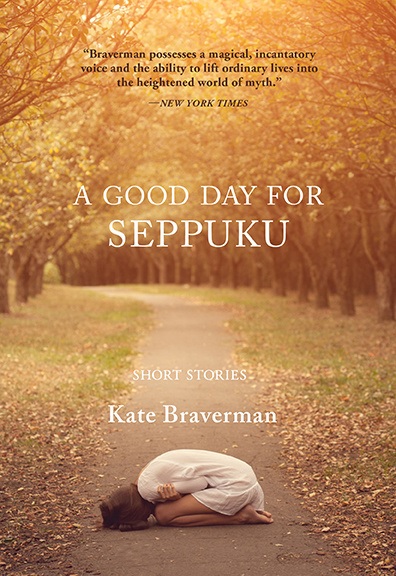 Book you're an evangelist for:
Book you're an evangelist for: Appalachian author, government adviser and founder of the North Carolina School of the Arts John Ehle died last Saturday at age 92. Born in Asheville, N.C., Ehle served as a rifleman in World War II, earned his Masters degree in dramatic arts and wrote for radio before publishing his first novel, Move Over Mountain, in 1957, followed by a biography, The Survivor: The Story of Eddy Hukov, in 1958. His second--and best-known--novel, The Land Breakers (1964), follows the first white people to settle the mountains of western North Carolina during the late 18th century. It became the first in a seven-part series set in the same region of Appalachia through the 1930s, two of which, The Winter People and The Journey of August King, were adapted into films. The Free Men, published in 1965, is a first-person account of the civil rights movement in Chapel Hill.
Appalachian author, government adviser and founder of the North Carolina School of the Arts John Ehle died last Saturday at age 92. Born in Asheville, N.C., Ehle served as a rifleman in World War II, earned his Masters degree in dramatic arts and wrote for radio before publishing his first novel, Move Over Mountain, in 1957, followed by a biography, The Survivor: The Story of Eddy Hukov, in 1958. His second--and best-known--novel, The Land Breakers (1964), follows the first white people to settle the mountains of western North Carolina during the late 18th century. It became the first in a seven-part series set in the same region of Appalachia through the 1930s, two of which, The Winter People and The Journey of August King, were adapted into films. The Free Men, published in 1965, is a first-person account of the civil rights movement in Chapel Hill.